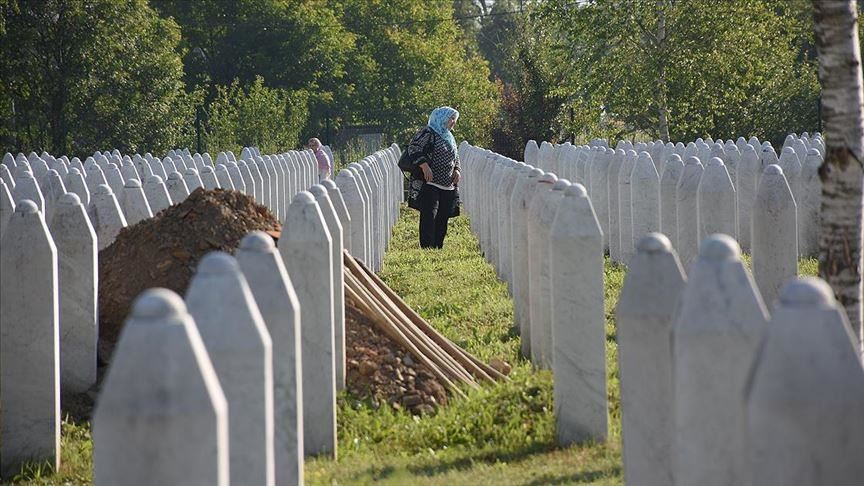
Bosnia and Herzegovina has finalized arrangements to bid adieu to 30 more identified victims of the Srebrenica genocide on the 28th anniversary of the atrocity.
Every year on July 11, newly identified victims of Europe’s worst genocide since World War II, which killed over 8,000 people, are buried in a memorial cemetery in Potocari, eastern Bosnia.
Emza Fazlic, a spokesperson for the Bosnia and Herzegovina Missing Persons Institute, told Anadolu that 30 victims, including four children, will be buried on the 28th anniversary of the genocide.
“Elvir Salcinovic is the youngest of the victims to be buried this year. Salcinovic was 15 years old when he was killed. Salcinovic’s remains were found in 2001, and he was identified in 2011. He will be buried next to his father and brother, who shared the same fate as him,” said Fazlic.
According to Fazlic, two of the victims were 16 years old when they were killed.
“They were identified in 2013, but their families waited until this year to be buried. The bones of some of the victims who will be buried this year were found in 1998,” he added.
The oldest victim was NezirMuminovic, who was killed at the age of 65, he said.
Thousands of visitors from various countries will attend the funeral service and burials. After this year’s funeral, the number of burials in the cemetery will rise to 6,751.
The bodies, whose identification has been completed, are kept in Visoko City Cemetery.
On Saturday, coffins bearing the names of the deceased will be transported from Visoko to Srebrenica.
More than 8,000 Bosnian Muslim men and boys were killed when Bosnian Serb forces attacked the UN “safe area” of Srebrenica in July 1995, despite the presence of Dutch troops tasked with acting as international peacekeepers.
Serb forces besieged Srebrenica, trying to seize territory from Bosnian Muslims and Croats in order to form their own state.
The UN Security Council declared Srebrenica a “safe area” in the spring of 1993. However, Serb troops led by Gen. Ratko Mladic – who was sentenced to life for war crimes, crimes against humanity, and genocide – overran the UN zone.
The Dutch troops failed to act and Serb forces occupied the area, killing about 2,000 men and boys on July 11 alone. Some 15,000 Srebrenica people fled into the surrounding mountains but Serb troops hunted them down and killed 6,000 in the forests.
The bodies of genocide victims were discovered in 570 different locations throughout the country.
